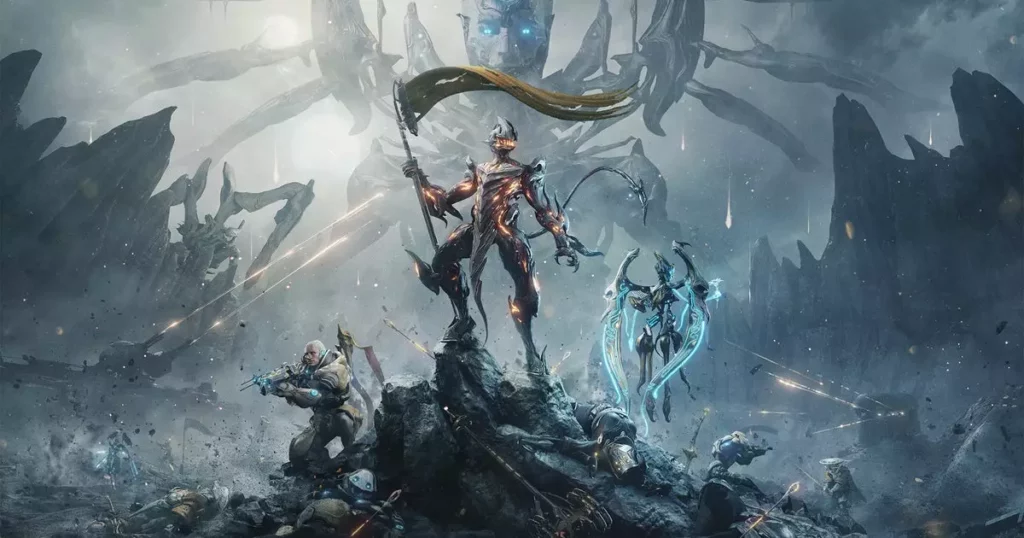Warframe presents itself as a sprawling sci-fi universe, teeming with lore and layered narratives, yet beneath this façade, it often feels like a gilded cage, trapping players in a monotonous cycle of grinding and incremental updates. The developers’ commitment to building a universe rich in story and mechanics is admirable on paper, but the reality often falls into the trap of superficial complexity. Many new players are overwhelmed by the sheer volume of lore, only to discover that much of it is locked behind repetitive missions, grinding for relics, and incremental power-ups that resemble a treadmill more than a meaningful journey. The narrative depth, with its cyclical themes of war and hope, is compelling theoretically but is often diluted by the gameplay itself, which tends to prioritize quantity over quality.
While the teasers for upcoming updates like The Old Peace hint at thoughtful storytelling, the truth is that these narratives are mostly superficial layers slapped onto a game that still relies heavily on an endless grind. The political intrigue and betrayals, while intriguing, become background noise in the relentless pursuit of new gear and higher damage thresholds. Warframe’s universe might seem vast, but it’s composed more of broken promises of depth than actual meaningful exploration. When players are encouraged to invest hours for marginal gains, the illusion of an evolving universe becomes just a shiny placebo for a core gameplay loop that is inherently repetitive.
Strategic Innovation or Tactical Illusion?
Warframe’s mechanics voice a desire for strategic depth, yet they often end up being another layer of complexity that complicates rather than clarifies. The expansion of skill trees, modding tutorials, and reworks for veteran frames like Oberon suggest a commendable effort to foster mastery, but it also reveals an overemphasis on player grinding. The focus on strategic mastery feels more like a chore than an achievement—rewarding patience and time rather than genuine skill. The so-called “refinements” serve to keep players locked in an ecosystem designed to maximize consumption, not innovation.
Furthermore, the new content like the Perita moon and The Devil’s Triad is more about adding layers of political intrigue within a universe that is already bloated with factions and storylines than about truly evolving the gameplay experience in meaningful ways. These additions tend to be superficial, giving players a false sense of progress while the core problem persists: Warframe is more about quantity than quality. The emphasis on acquiring rare Warframes like Uriel and chasing exclusive rewards plays into a culture of obsession with exclusivity, rather than fostering genuine strategic engagement. It’s a cycle that benefits the developers financially but practically diminishes the game’s overall quality as a strategic platform.
More Than a Game: A Branding Machine with a Flawed Core
Digital Extremes’ ambitions extend beyond the digital realm into tabletop gaming with the Starfinder crossover and TTRPG module. While this demonstrates a desire to expand the Warframe universe beyond digital boundaries, it exposes a fundamental weakness: the franchise’s core remains reliant on superficial storytelling and incremental gameplay. These endeavors serve as marketing tools more than meaningful expansions—attempts to rebrand Warframe as a premium storytelling experience but ultimately sacrificing depth for broader appeal.
This strategy risks diluting the brand’s core identity, turning what could be a distinctive universe into a series of product placements and franchise expansions. The move toward multimedia storytelling might bring fresh perspectives and new audiences, but it also risks diverting attention from the core gameplay experience—one that many players find excessively grindy and lacking in genuine innovation. Warframe’s long-term narrative arc about cosmic conflict and existential threats sounds ambitious, but it often feels like a cover-up for fundamental gameplay issues that have persisted for years.
Is Warframe Truly Evolving, or Just Changing Shelves?
The promise of future content like the Tau update in 2026 and the ongoing “Void War” narrative seems more speculative than certain. As promising as these long-term storylines sound, they merely serve to hook players into a game that has historically struggled with delivering on its promises of meaningful evolution. The game’s cyclical updates—each dressed as groundbreaking—are well-known in the industry: shiny new content that sustains interest without addressing core gameplay flaws.
Moreover, the continuing emphasis on lore and universe-building takes attention away from the glaring issues of game design that hamper long-term engagement—namely, repetitive gameplay, a lack of genuine challenge, and an overreliance on grind before reward. The narrative ambitions do little to mask the fact that Warframe’s fundamental mechanic of constantly chasing incremental gains has become an oppressive treadmill for dedicated players who would rather see innovation than spectacle.
Going forward, Warframe’s “universe” may well become an elaborate illusion—an overhyped sandbox promising depth that is ultimately a veneer covering the same old grind. Its projected future may be filled with promises of cosmic battles and philosophical debates, but unless a genuine overhaul prioritizes meaningful gameplay over narrative spectacle, it risks becoming just another overpromised franchise, a sterile universe that fans cling to out of loyalty rather than satisfaction.









Leave a Reply